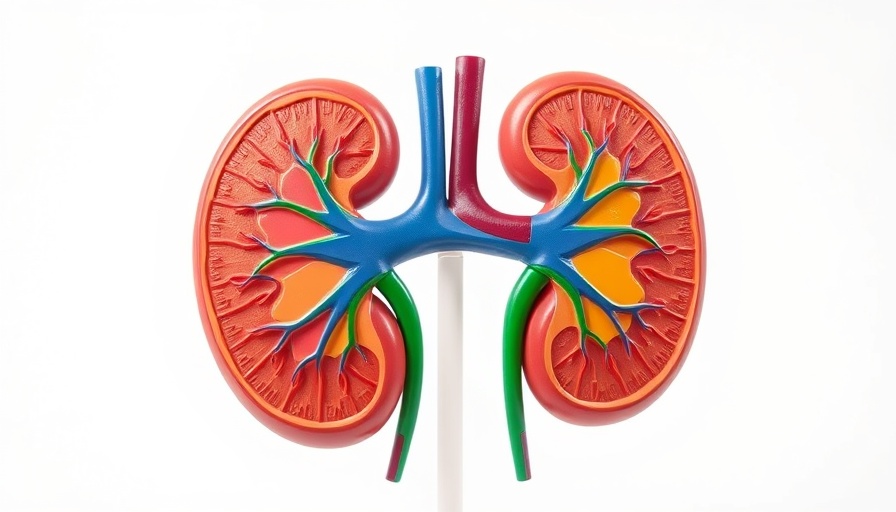
Understanding Kidney Health: The Silent Crisis Among Seniors
Chronic kidney disease (CKD) is a pressing concern for senior citizens, with approximately 44% of those over the age of 65 facing this debilitating condition. The kidneys play a vital role in filtering waste and maintaining bodily balance, making their health crucial to overall well-being. This staggering statistic highlights the need for proactive measures in kidney care tailored specifically for the elderly population.
Healthy Diet: The First Line of Defense
One of the most effective strategies for preventing kidney failure is maintaining a healthy diet. A balanced plate should be rich in colorful fruits, vegetables, wholesome grains, and lean proteins, all of which are known to alleviate stress on the kidneys. Seniors should strive to keep sodium intake below 2,300 mg a day while reducing added sugars and processed foods. These dietary adjustments not only promote kidney health but also manage blood pressure and blood sugar levels—two significant contributors to CKD.
The Importance of Staying Active
Regular physical activity is a cornerstone of health, especially in older adults. Engaging in moderate exercise—whether it’s a brisk walk, swimming, or even gentle yoga—supports cardiovascular well-being, aids in weight control, and helps lower blood pressure. Studies pinpoint that those who remain physically active can dramatically reduce their risk of kidney failure.
Staying Hydrated: A Simple Yet Effective Habit
Hydration is essential in maintaining optimal kidney function. Seniors are advised to consume approximately 6–8 cups (1.5–2 liters) of fluids daily, while ensuring that individual health needs and conditions are considered—particularly for those with existing kidney issues or heart conditions. Adequate hydration aids the kidneys in filtering waste efficiently and can even stave off complications such as kidney stones.
Avoiding Harmful Substances: Protecting Your Kidneys
It’s critical to be aware of substances that can harm kidney function. Over-the-counter pain relief medications, particularly NSAIDs like ibuprofen and naproxen, should be used sparingly among seniors. Furthermore, habits such as smoking and excessive alcohol consumption pose risks by damaging blood vessels and inhibiting kidney blood flow. Making informed decisions about these substances can directly benefit kidney health.
Monitoring Kidney Health: Early Detection is Key
Partnering with healthcare professionals to monitor kidney health is vital for seniors. Regular check-ups and blood tests can help identify early signs of declining kidney function, allowing for prompt intervention. Knowledge empowers individuals to take control of their health, enhance their quality of life, and potentially avert kidney failures.
Emotional Well-being: The Overlooked Aspect of Health
Understanding the emotional dimensions of dealing with potential kidney issues is essential. Feelings of worry or anxiety can emerge, especially for those dependent on regular medical appointments or medications. Open discussions about fears and experiences can foster supportive environments among peers, family, and healthcare providers, strengthening the emotional resilience needed to tackle health challenges.
Practical Tips for Healthier Living
Incorporating the discussed strategies into daily life can begin with small, manageable steps. Consider swapping out processed snacks for fresh fruits, scheduling regular walks with friends or family, and keeping a daily hydration diary. These minor adjustments contribute significantly to enhancing kidney health and overall well-being.
In Conclusion: Take Charge of Your Kidney Health Today!
As we navigate the later stages of life, prioritizing kidney health is crucial. By embracing a holistic approach—focused on diet, activity, hydration, and prevention—we can ensure a healthier, more fulfilling future. Don't wait for symptoms to arise; take action today for better kidney health!
 Add Row
Add Row  Add
Add 




Write A Comment